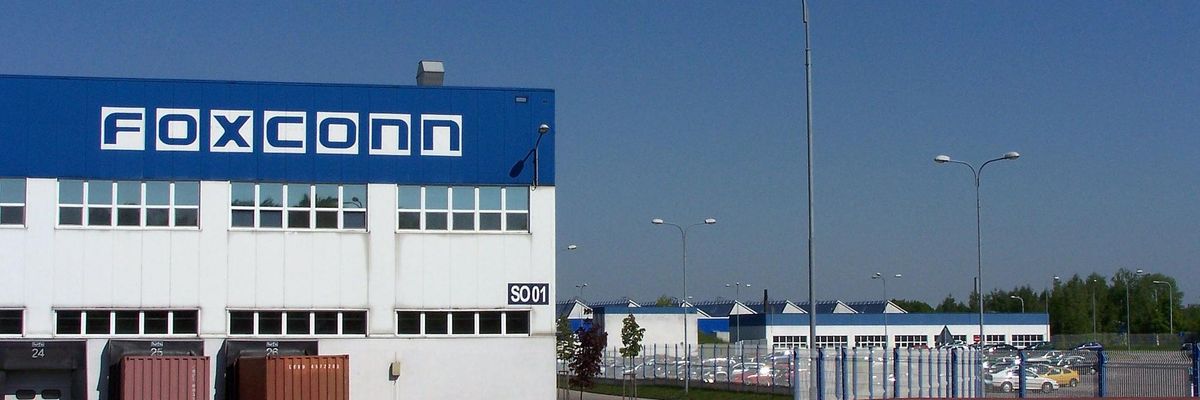Critics are raising doubts about Wisconsin Governor Scott Walker's plan to bring the Taiwanese manufacturer Foxconn to the state, by way of a $3 billion dollar investment to fund a huge new factory in the southeastern part of the state.
While the project has been heralded as an example of Walker's commitment to bringing jobs to the state--and that of President Donald Trump, who has championed the planned deal and has called it "incredible"--economists and Wisconsin residents alike are questioning how much the state stands to gain from Foxconn's arrival.
Residents of southeastern Wisconsin have expressed alarm at Walker's attempt to push the deal through hastily, with little input from those who would be impacted by Foxconn's presence. The proposal being considered by lawmakers includes provisions that would allow Foxconn to start building without a detailed analysis of its environmental impact, which is usually required of large projects. The company would also be exempt from state regulations that protect wetlands.
"Our government is willing to sacrifice things like the environment that are irreplaceable to the people, just for commerce," said resident Bill Keyes in an interview with the New York Times. "These rules on the environment are hard-won victories, and they're being ignored, like they don't mean anything."
The local chapter of the Sierra Club has also spoken out against the proposal. "From a broad brush, bringing in a manufacturing facility to Wisconsin is fine as long as you do it right," chapter director Bill Davis told the Times. "The things that attract businesses to Wisconsin tend to actually be clean air, clean water, skilled work force. So you don't want to jeopardize those things."
Walker has said the "once-in-a-lifetime" project would create up to 13,000 jobs if it's approved by state legislators, which could happen as early as next week. Those jobs would be partially funded by $3 billion in taxpayer-funded subsidies. But according to an analysis by the nonpartisan Legislative Fiscal Bureau, taxpayers wouldn't see a return on their investment until at least 2042.
The report notes that "it is likely that some of the new positions would be filled by Illinois residents," which could mean it would take even longer for Wisconsin to break even on the project.
As the Washington Post reported on Wednesday, "Wisconsin has an unusually low unemployment rate (3.2 percent), well below the country's 4.3 percent. Employers there already complain about having trouble finding workers...If Foxconn fills jobs with workers from neighboring Illinois, where the unemployment rate is 4.7 percent, analysts predict the deal won't start making money for Wisconsin until 2045."




